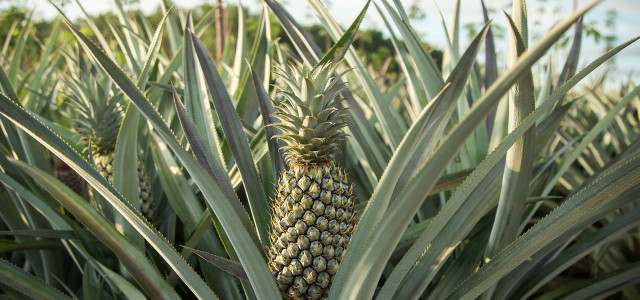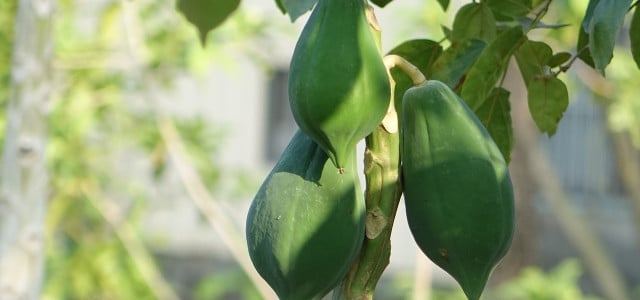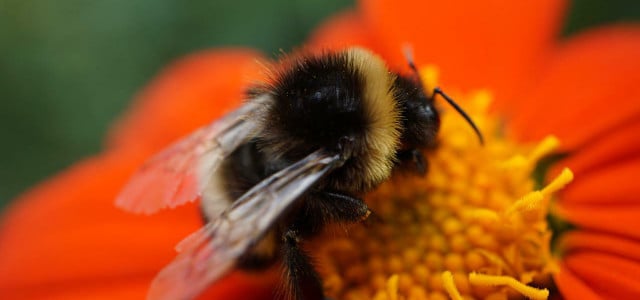You may be surprised to learn that pineapples don't grow on trees. We'll explain why it can't happen, where pineapples grow and how sustainable they are to produce.
Do pineapples grow on trees? It’s a common misconception that they do, but they don’t. Pineapples don’t grow underground like some vegetables either. In fact, pineapples grow from a leafy, slightly spiky plant. They thrive in tropical conditions, with the optimum temperature being around 77 degrees Fahrenheit — areas that are consistently warm and don’t experience freezing temperatures, like Florida, are the best location in the US.
So how do pineapples grow? We’ll discuss how they are cultivated and the environmental impacts of this process.
Where Do Pineapples Grow?
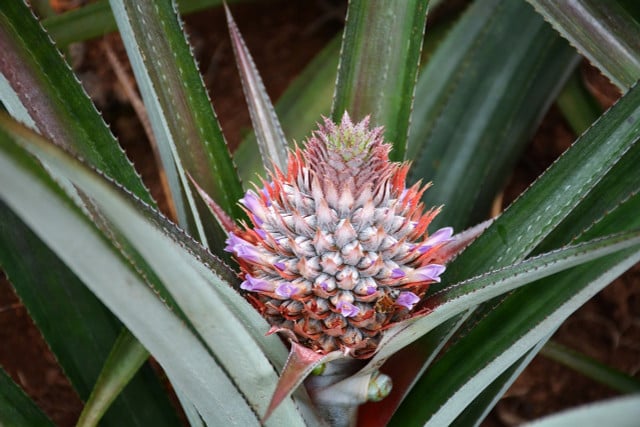


(Foto: CC0 / Pixabay / anncapictures)
Most fruits, except berries, grow on trees, so it’s unsurprising that many assume pineapples also follow suit. This is simply not true, pineapples grow in the ground from a leafy plant. The pineapple grows from the central stem of the plant which grows a purple flower first and is surrounded by long, thick, spiky leaves which can grow up to 5 feet long. It takes two to three years for the plant to mature and for the flower to appear. After a few months of the flower stalk growing taller, the flower petals will drop off, revealing a green pineapple.
The pineapple is ready to be harvested when it is a yellow, or orange color. Each plant only grows one pineapple, which is then cut at the base to be removed from the plant. It’s relatively simple to grow a new pineapple plant, simply save the stalk of the plant, which contains some roots, and replant it in the ground or in a small pot of water. If the pineapple plant is left in the ground after harvesting the fruit, a new pineapple will grow from it the following year.
Pineapple Farming Impacts
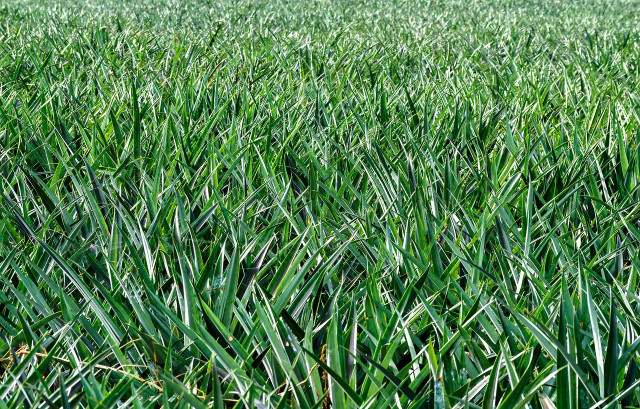


(Foto: CC0 / Pixabay / 1CzPhoto)
The biggest benefit of pineapple plants is that they don’t require much water and can survive in relatively dry soil. However, pineapple farming is an intensive practice that uses high levels of herbicides and pesticides that are harmful to the environment. Growing pineapples often involves clearing land and planting vast swathes of the same plant, creating a monoculture, which is harmful to the biodiversity of the area.
In addition to their negative environmental impacts, pineapple farming is not always ethical due to the often precarious working conditions and unfair wages. That’s why it is vital for consumers to choose Fairtrade and organic pineapple whenever possible or choose to substitute other fruits.
Read more:
- Pineapple Peel: Why You Shouldn’t Throw Them Away
- Can You Freeze Pineapple? Yes: How-to and Recipes
- Homemade Dole Whip: Easy Vegan Recipe
Do you like this post?






